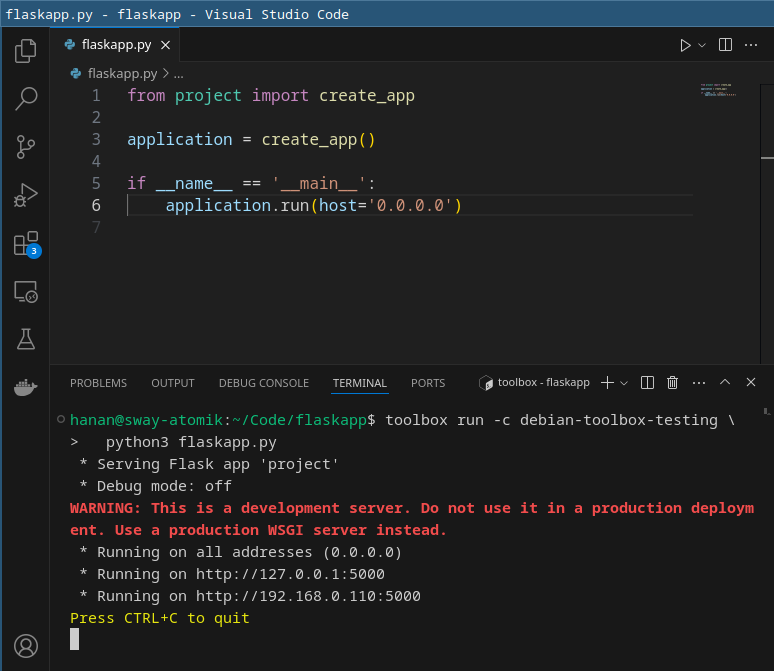In the previous post, I’ve written about how to start to develop the Flask application using the Python virtual environment. In this writing, I’ll use different approach using the containerized environment with Toolbox (or Toolbx). Toolbox makes it easy to use a containerized environment for everyday software development and debugging. With this tool, makes the …
Continue reading “Developing Containerized Application with Toolbox”










